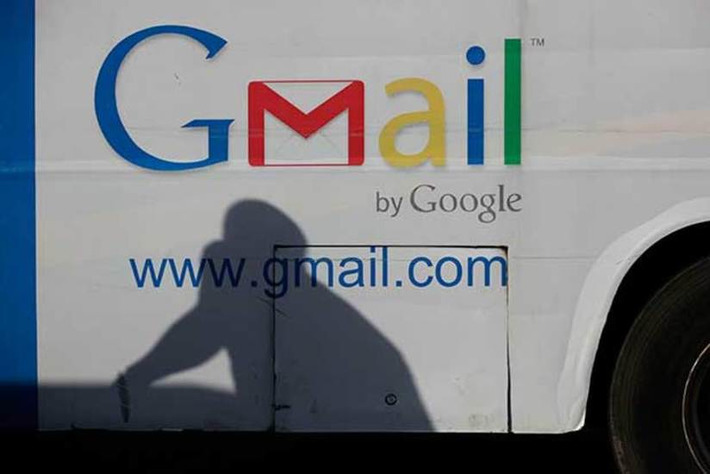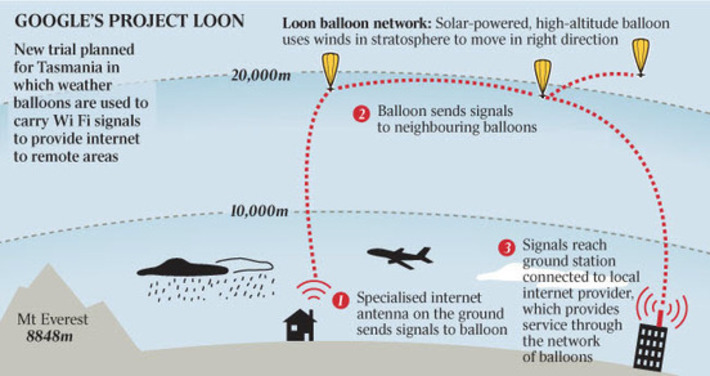Google prints money. It made $56 billion in revenue and earned $13 billion in its last full fiscal year.
All of that cash has kept Google shareholders happy for a very long time, so happy that they didn’t seem to care when the company opened up the door to competitors or missed a few pivotal trends. Even as Google's growth slows and the company matures, I’m sure that shareholders could stay happy for a little while longer. Analysts say the company will add $31 billion in search revenue alone over the next five years.
But money doesn’t mean that all is well in Mountain View, California. Tiny fissures have appeared in Google's façade. Its share of the U.S. search market fell to 75.2 percent in December from 79.3 percent a year ago. That piece of the pie could get smaller this year if Apple cancels its deal to use Google as its default mobile search engine. That would be a big loss. Citigroup analyst Mark May says that 60 percent of Google's mobile search revenue in 2014 came from the Apple deal.
Google stock has underperformed. It’s down 11 percent over the last year, versus a 14 percent gain for the Nasdaq and a 36 percent gain for Facebook.
The Google of 2015 is not unlike the early 2000s Microsoft – a hugely profitable company that is having a hard time innovating around its core product. Unless something is done, it will likely go through spasms of flailing and discontent that will be familiar to longtime veterans of the Redmond, Washington software giant.
For all of its innovation, best captured by Eric Schmidt’s “How Google Works,” Google is a 55,000-person behemoth, and it’s nearly impossible for any company to move quickly and creatively at that size. Among tech giants, only Apple has managed to innovate after becoming so big. Hewlett Packard? Nope. IBM? No way.
Despite all the talk about Google’s much vaunted moonshots - self-driving cars and Google Glass, internet-connected balloons and drone deliveries - the company is still basically a purveyor of cheap online ads that it sells at massive volume against the things that we search for online. Advertising accounted for $51 billion of the company’s $56 billion in revenue last year.
The most valuable thing that the official moonshot incubator, Google X, has produced isn’t innovative products that will maintain Google’s search dominance. It’s good PR. It codified the idea that Google is always trying new stuff and failing because that’s what true, crazy, bountiful innovation looks like.
With the Google X mythology, Google has cover for all sorts of (sometimes expensive) failures, including the aforementioned smart glasses. It also has cover for failed products that could be more germane to the core business' success, like social networks (R.I.P. Google Plus and Google Buzz), payments (Google Wallet, in remembrance) and storage (wither Google Cloud Platform?).
The willingness to fund a division like Google X means that Google wants to test the boundaries in lines of business where success doesn’t really count in the here and now. But that hasn’t saved Google from stagnating in ways that do.
Click headline to read more--
Via
Chuck Sherwood, Former Senior Associate, TeleDimensions, Inc





 Your new post is loading...
Your new post is loading...


















I love Google and their products. I love how they've pushed the enveloppe to draw digital into our lives. And I also know enough about what they do with the data to be careful. This article is great because it lists some of the most common ways in which Google tracks info about you.
Today, I don't mind about this invasion of my privacy, because what they do with the data seems pretty harmless to me - even maybe can be considered a service - which is to target better ads to me.
What is really scary is not what Google does with my data: after all, they are being scrutinized by so many and their business model depends on not abusing the information they gather about us. However this is not be true for the other companies that track information about me and do not share the same prying eyes as Google does: Apple? Facebook? Mastercard and Visa? Walmart? Governments?
THAT is something to worry about...